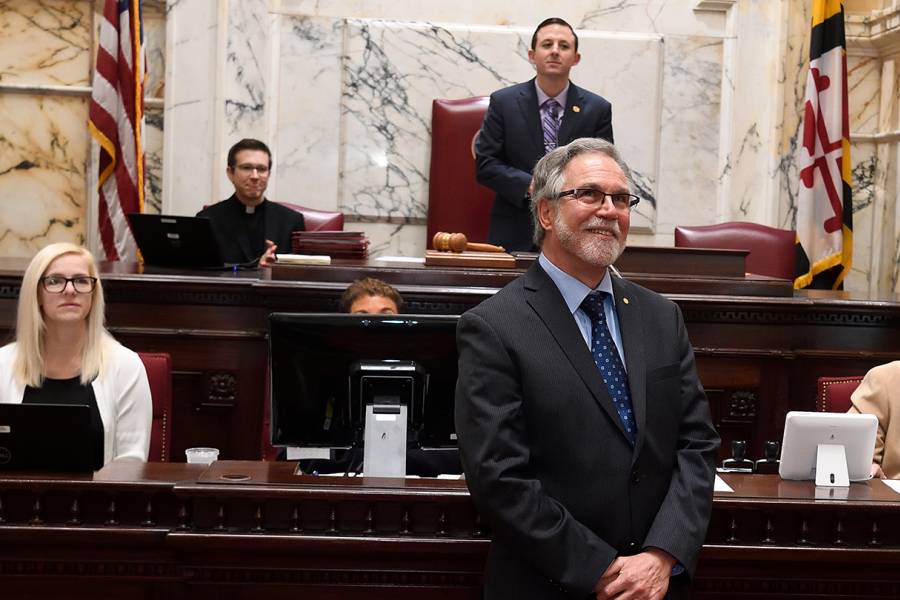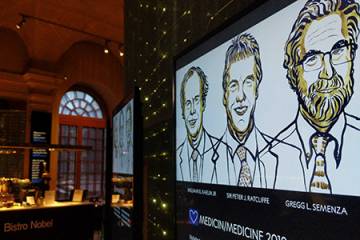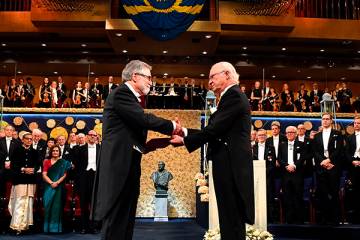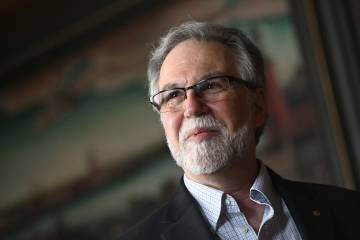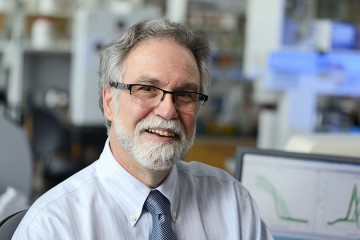In the historic chambers of the Maryland State House, Johns Hopkins scientist Gregg L. Semenza was recognized Thursday for his contributions to science and humanity, and for winning the Nobel Prize.
In dual resolutions, both the Maryland Senate and House of Delegates congratulated Semenza for his "groundbreaking scientific leap" in discovering how cells sense and respond to low oxygen levels. This breakthrough—which could lead to treatments for cancer, diabetes, heart disease, and other conditions—earned Semenza the 2019 Nobel Prize in physiology or medicine.
"It's not every day we have a Nobel Prize winner in our midst," said Bill Ferguson, president of the Maryland Senate.
Video credit: Dave Schmelick
Semenza, the C. Michael Armstrong Professor of Medicine at the Johns Hopkins University School of Medicine, directs the vascular program in the Institute for Cell Engineering. He accepted his Nobel in Stockholm, Sweden, in December.
While visiting the Senate in Annapolis on Thursday, Semenza said the work he and his team have accomplished "really wouldn't have been possible anywhere else" but at Johns Hopkins.
"It's a team that works together to try to create new knowledge that we can then translate to the clinic," he said, noting that the discoveries "have already led to new types of treatments for cancer and anemia.
"Especially in Maryland, science and technology and medicine are really part of the economic engine for this state, and we at Hopkins keep the motor running," Semenza added.
The Nobel laureate was joined for the visit by his wife, Laura Margaret Kasch-Semenza, and one of his children, Evan. Paul Rothman, dean of the medical faculty and vice president for medicine of Johns Hopkins University, also attended, along with several of Semenza's Hopkins colleagues, including William Nelson and Cynthia Zahnow, both of the Sidney Kimmel Comprehensive Cancer Center; and neuroscientist Ted Dawson.
Semenza also received a Governor's Citation for his achievement, signed by Maryland Gov. Larry Hogan.
At a reception following the statehouse proceedings, Semenza said he's grateful for "the people of Maryland recognizing the science." While scientific research can often seem like "something vague and esoteric," he said, it's valuable "for the public to understand how discoveries we make in the lab lead to treatment in the clinic."
Posted in Science+Technology, University News
Tagged nobel prize, gregg semenza




